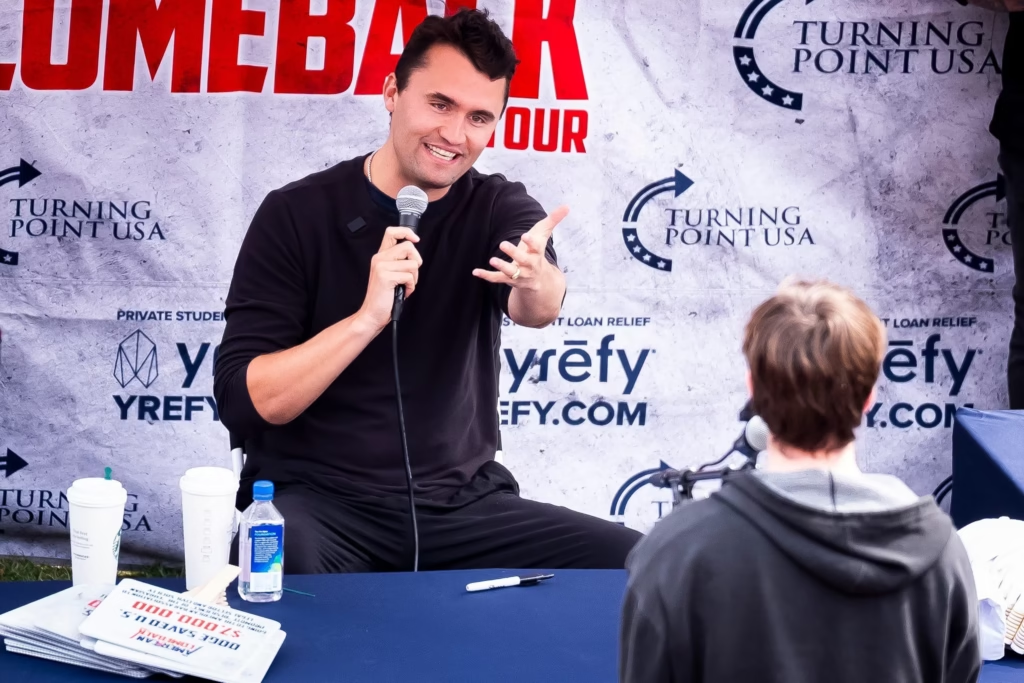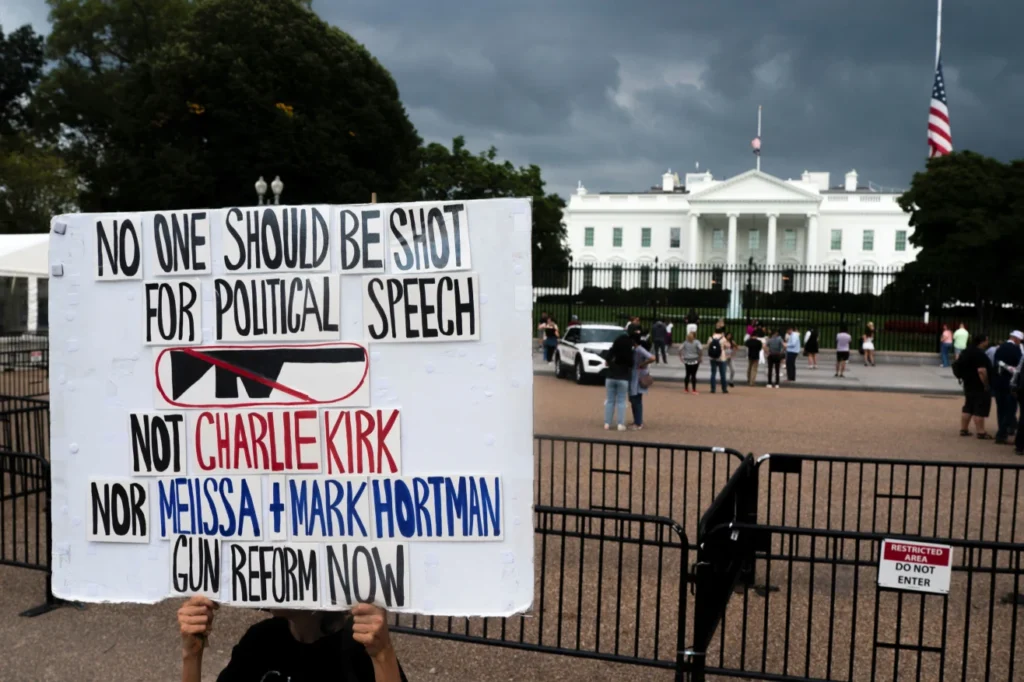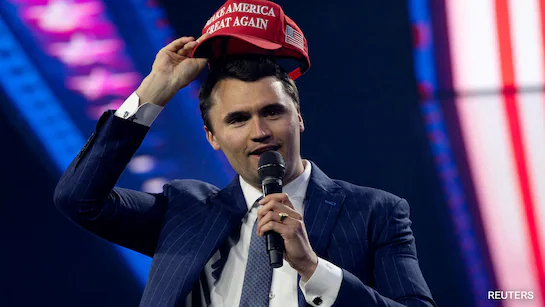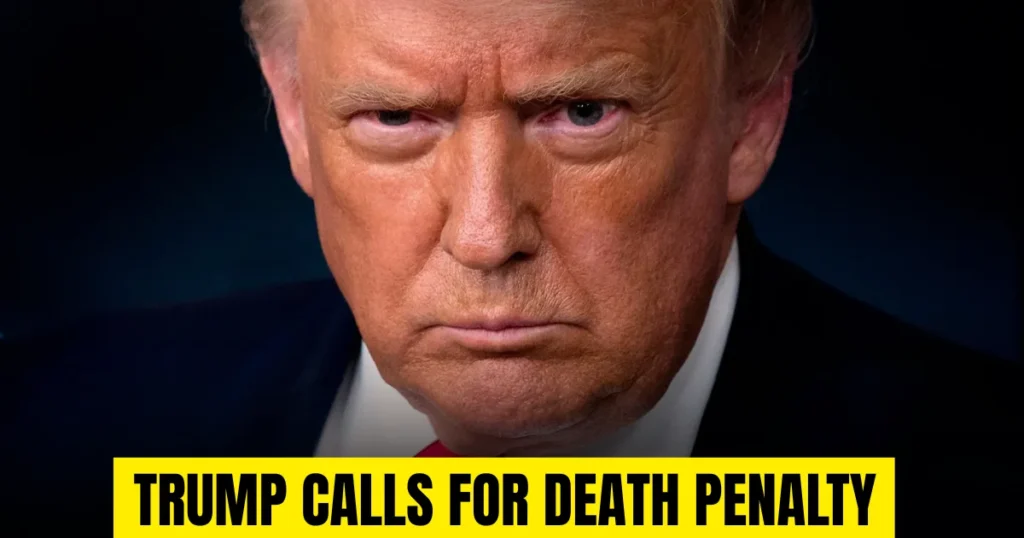The assassination of Charlie Kirk has shaken U.S. politics. Lawmakers now fear for their safety, raising concerns about the future of open campaigning, democracy, and free political speech.
Table of Contents
After Charlie Kirk’s Assassination, America Faces a New Era of Political Fear

America is at a crossroads. The assassination of Charlie Kirk, a prominent conservative activist and President Donald Trump’s ambassador to young Republicans, has not only shocked the nation but also raised pressing questions about the future of democracy and political engagement in the United States.
For decades, American politics has thrived on open debates, grassroots events, and face-to-face interactions with voters. But Kirk’s murder in Utah has exposed the risks politicians face when stepping out from behind security barriers. Lawmakers now wonder if traditional, freewheeling campaigning may soon be replaced with restricted, highly guarded events.
The Rising Dangers of Political Engagement
Senator Kevin Cramer of North Dakota expressed a chilling reality: “I like being accessible, but being accessible is starting to look like being vulnerable.” Following Kirk’s killing at a large outdoor event, many politicians are reconsidering the risks of public campaigning.
The fear is simple: if open-air rallies, town halls, and grassroots meetups are replaced by closed-door gatherings with airport-style security, democracy itself could become more distant from the people.
Why Charlie Kirk’s Political Style Mattered

Kirk wasn’t a traditional politician. His campus tours and grassroots events aimed to spark debate, even among critics. His focus was on free speech, civil discussion, and direct interaction with voters — values that are now under threat.
Ohio Representative Warren Davidson stressed that too many political gatherings have turned into spectacles, where participants focus on shouting down opponents instead of fostering genuine debate — the very opposite of the respectful dialogue Kirk had promoted.
A Dark History of Political Violence
Sadly, Kirk’s death is not an isolated event. The U.S. has a long and painful history of political violence:
- Robert F. Kennedy was assassinated in 1968.
- Rep. Gabrielle Giffords was critically injured in 2011.
- House Majority Leader Steve Scalise survived a 2017 shooting during a congressional baseball practice.
These tragedies highlight a dangerous truth — politicians are vulnerable everywhere, whether at rallies, in offices, or even in their homes.
Can Democracy Survive Behind Closed Doors?

Political veterans argue that restricting public campaigning could damage democracy itself. Coffee shop talks, school events, and backyard town halls have historically launched great political careers. Barack Obama and Donald Trump both rose to power by connecting directly with voters in small, personal settings.
If those opportunities vanish, politics risks becoming more radicalized and less accountable, dominated by online echo chambers instead of genuine human interaction.
Lawmakers Call for More Security
House Speaker Mike Johnson has already called for a review of security protocols, but protecting every lawmaker with Secret Service–style detail would cost billions of dollars. Realistically, not every member of Congress can receive the same protection as top leadership.
This raises an unavoidable dilemma: how can America safeguard politicians without stripping democracy of its accessibility?
A Divided Response
In the aftermath of Kirk’s death, partisan divisions are already deepening. Democrats criticized President Trump’s Oval Office address for blaming the “radical left” without evidence, while Republicans argue that constant attacks on Trump have fueled political hostility.
Instead of unity, the nation risks further polarization — echoing the split seen after 9/11, when initial solidarity quickly gave way to bitter partisanship.

What’s at Stake for America
Former President George W. Bush emphasized the seriousness of the situation, urging Americans to reject hostility in public life and to view members of other political parties not as adversaries but as fellow citizens sharing the same nation.
But as America prepares for another election cycle, one truth is clear: if violence continues to dictate the terms of political engagement, the very soul of democracy may be at risk.
FAQs
Q1: Why was Charlie Kirk assassinated?
Authorities have not released a definitive motive. Investigations are ongoing, but his death highlights the rising trend of political violence in America.
Q2: How could Kirk’s assassination change U.S. politics?
Lawmakers may shift toward indoor, highly secured events, limiting direct voter engagement. This risks creating more distance between politicians and the public.
Q3: Has political violence always been an issue in the U.S.?
Yes. From Abraham Lincoln’s assassination to the shooting of Gabrielle Giffords, political violence has repeatedly shaped American history.
Q4: Can enhanced security guarantee safety for politicians?
No. While additional security measures can reduce risks, politicians remain vulnerable at public events, in private settings, and even in their homes.

